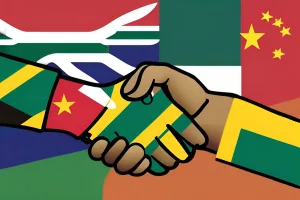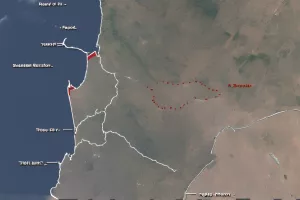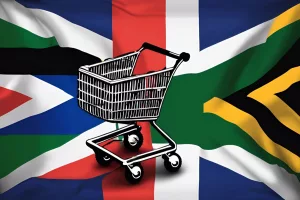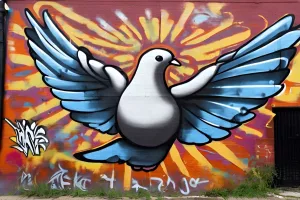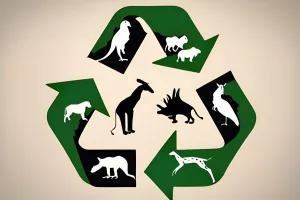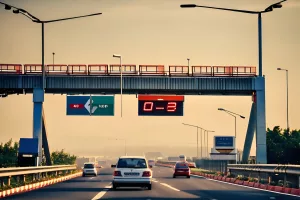Excitement and anxiety are building in South Africa as the Springboks prepare to face off against the All Blacks for the first time since their memorable World Cup final. However, the high cost of tickets is causing resentment among fans, who feel that the match symbolizes the historical rivalry and mutual legacy of these two rugby giants. Meanwhile, uncertainty surrounds the captaincy of the Springboks, with coach Rassie Erasmus remaining tightlipped about his pick for this year’s leader.
Escape the crowds and find serenity at South Africa’s hidden beaches. From the tranquil Mabibi Beach in KwaZulu Natal to the fairy tale setting of Noetzie Beach on the east side of Knysna, these secluded spots offer a peaceful retreat for those seeking a connection with nature. Whether you want to swim, snorkel, surf, or simply soak up the stunning scenery, these unspoiled treasures provide the perfect sanctuary to recharge and relax.
The upcoming matches against Wales and Portugal present a unique opportunity for new talent to shine and potentially make their mark in international rugby. The Upcoming Matches: A Unique Opportunity for New Talent
PepsiCo has launched a bold new marketing campaign in South Africa, including a revamped logo and visual identity. The updated branding features a new colour palette of blue and black, a tailored typeface, and a reimagined Pepsi can silhouette. PepsiCo also introduced a grand procession of events and enlisted the star power of noted rappers to oversee activities in Cape Town and Johannesburg, as well as CGI billboards and drones. The brand makeover heralds a new epoch for Pepsi, embodying the spirit of being unapologetically Pepsi.
South Africa and China have a thriving partnership that has developed over the past 25 years, resulting in significant economic growth and the creation of over 400,000 jobs in South Africa. The Comprehensive Strategic Partnership is part of a wider 10year Strategic Programme of Cooperation that emphasizes socioeconomic enhancement and shared growth. These vibrant trade relations address poverty, inequality, and unemployment, promoting engaged citizenship and social contracts aimed at achieving development objectives. South Africa celebrates three decades of democracy and freedom, promoting a shared vision for quality growth.
Loowatt, a private toilet service in South Africa, charges R350 per month for its offering that includes maintenance. The service is spearheaded by Loowatt and Khanyisa Projects, and it promotes the production of locallymade toilets that bolster business growth and sustainability. Despite the positive progress, South Africa’s informal settlements still face a need for accessible, secure, and private home sanitation services that reflects an inhabitant’s aspiration for dignity and respect.
The proposed reforms signify a critical milestone in the journey towards a secure and thriving South Africa, striking a balance between national security and individual rights. Addressing Security Concerns in South Africa’s North West Province: How is the General Intelligence Laws Amendment Bill helping to reinforce state security? The Bill proposes key reforms to the intelligence services, including the division of the State Security Agency into domestic and foreign intelligence services. The locals support the Bill’s potential to bolster border controls and tackle corruption within the Department of Home Affairs while also expressing reservations about potential infringements on individual privacy. The proposed reforms signify a critical milestone in the journey towards a secure and thriving South Africa.
In South Africa, Amazon and local ecommerce giant Takealot are engaged in a battle for supremacy in the rapidly growing ecommerce market, which is projected to reach $72bn within two years. Amazon’s business model, which provides a highly personalized shopping experience, has won over many South African consumers, while Takealot’s existing foothold in the local market has made it a formidable competitor. However, with the launch of Amazon’s South African website imminent, industry experts predict a challenging time for Takealot. The competition between these two ecommerce titans signals a new phase in the South African ecommerce sector marked by intense rivalry and innovation.
South Africa’s artisanal and smallscale mining (ASM) sector shows promise in fueling economic growth, especially for women and youth. The government is implementing progressive initiatives, including the 2022 ASM Policy, funding opportunities for artisanal miners, and a R400 million exploration fund. Collaboration, capacity building, and empowerment are crucial for reshaping the South African mining sector and achieving economic development. The recent Artisanal, SmallScale, and Emerging Miners Symposium showcased the untapped potential of ASM and the rich mineral resources of Africa, highlighting the critical role that smallscale miners play in the metamorphosis of the South African mining industry.
In East London, South Africa, the Flying Squad, SAPS’s anticrime force, uncovered a major drug bust. They received an anonymous tipoff about a woman carrying illicit substances on a bus journey and found fifteen bricks of Tik, worth R3 million rands. The woman was arrested and represents the broader struggle against drug trafficking, highlighting the immense pressure placed on law enforcement agencies. This story serves as a powerful reminder of the ongoing battle against drugs and the need for vigilance against the criminal underworld.
Operation Shanela is a groundbreaking approach to policing in South Africa’s Western Cape, aimed at combatting severe and violent crime. It involves direct engagement between law enforcement and the community to promote crime deterrence and foster a stronger relationship. The upcoming Ministerial Izimbizo in Hanover Park symbolizes a shift towards a more communityfocused approach to policing and exemplifies the immense potential of meaningful policecommunity alliances in establishing a safer society. However, sustained execution of such communitybased strategies is necessary to achieve a persistent decrease in crime rates.
South Africa is making significant contributions to the global fight against plastic pollution by participating in the Intergovernmental Negotiating Committee’s fourth session (INC4) in Ottawa, Canada. With a deep understanding of the harmful impacts of plastic pollution on land, water, and marine ecosystems, South Africa is committed to implementing strategies that bolster waste management services, encourage recycling systems and raise public awareness through cleanup campaigns. The country’s negotiation strategy is fortified by its Constitution’s pledge to safeguard an unspoiled environment and protect it from plastic pollution.
The discontinuation of etolls in Gauteng marks a new chapter in South Africa’s history, with the government’s decision demonstrating its commitment to catering to the needs of its citizens. Etoll gantries will remain functional for road safety purposes, but road users need not worry about any immediate alterations. The termination of etolls heralds a new era of opportunities for SANRAL to pursue private funding for upcoming capital expenditure projects, augmenting the country’s road infrastructure.
Strengthening Democracy: South Africa’s National Assembly Revamps its Petition Guidelines
South Africa’s National Assembly has made a significant decision to strengthen democracy by allowing the public to directly petition without the need for parliamentary intermediaries. This move aims to create a more transparent and accessible legislative process, breaking down barriers to democratic participation. Petitions must comply with guidelines for language, signing, submission, clarity, decorum, and supplementary documentation, and aim for action within the spectrum of the House, national government, or a Minister. This change signifies a new era of democratic participation, shaping the future of public involvement in governance.
The etolls in Gauteng, South Africa have been terminated due to public sentiment, marking a new chapter in the country’s transport infrastructure. The gantry lights and cameras will still operate for road safety, and payments at toll plazas can still be made through accounts in good standing. While discussions around sustainable funding solutions for road construction, maintenance, and upgrades continue, the discontinuation of etolls is a triumph for democracy and a step towards a more responsive and inclusive form of governance.
South African President Cyril Ramaphosa’s suggestion to discontinue social grants after the 2024 General Election if the African National Congress (ANC) does not win has caused political unrest. Opposition parties doubt the welfare system will be eradicated, and instead, offer different approaches, such as a Basic Income Grant or voucher system for job seekers. The future of social grants is yet to be determined, and discussions among political parties highlight the complexity of the issue and the potential to alter South Africa’s socioeconomic structure.





